Why does acne leave a mark?
As if acne itself weren’t annoying enough, pimples can leave a long-lasting mark. Acne scars can make a depression or textural change in the surface of your skin, while post-inflammatory hyperpigmentation creates a purple, gray, or brown mark. Acne is caused by inflammation, and depending on the degree of that inflammation and your skin type, a blemish can create discoloration or an indentation when your skin tries to heal, says Ivy Lee, MD, a dermatologist based in Pasadena, California, and assistant clinical professor of dermatology at UCLA. The best way to prevent either one is to attack acne before it starts, she says. “It’s much harder to deal with [scars] than treating and preventing acne,” she says. (Try this easy way to get rid of pimples.) Avoiding certain habits will make your skin more likely to clear up without leaving a mark.
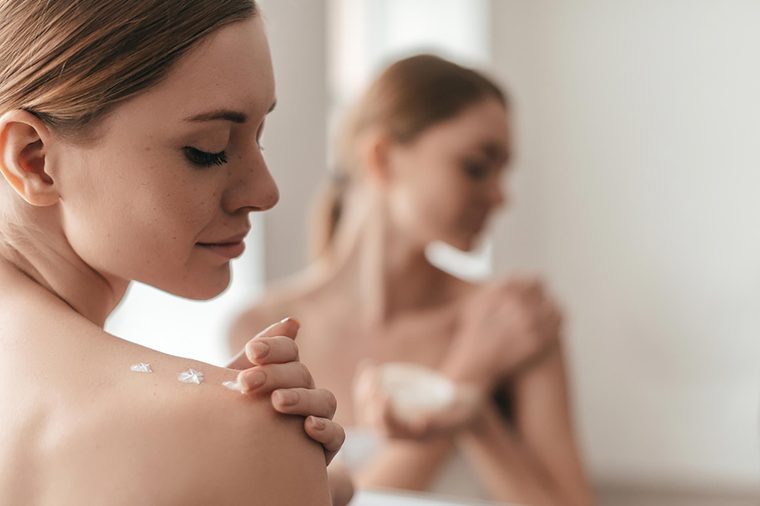
You skip sunscreen
Acne treatment products make the skin more sensitive to UV rays, so sunscreen is already a particularly important step if you are dealing with pimples. To make matters worse, though, that sun damage also makes your skin more likely to scar. “UV radiation and sun exposure are more likely to cause scars to discolor or take more time to heal,” says Dr. Lee. Make sure you add SPF to your daily beauty routine to protect your skin from cancer, wrinkles—and scarring. If you’re afraid it will make you break out, learn which sunscreen ingredients can cause acne.
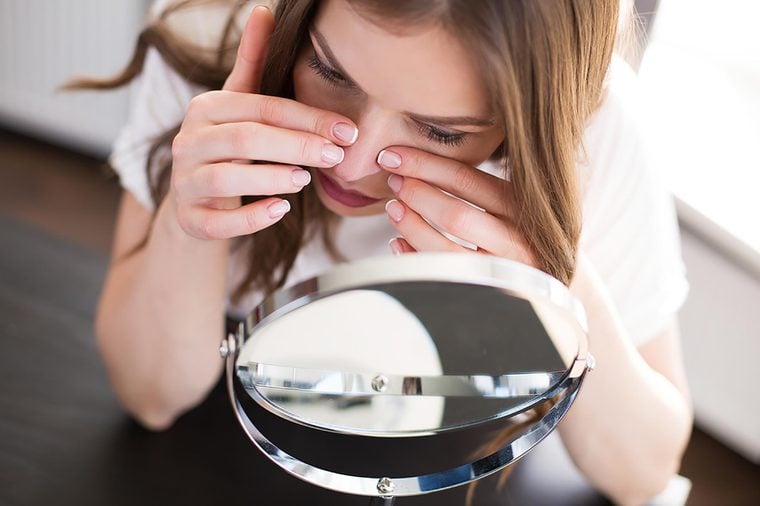
You like to pop your pimples
You’ve heard it before, but it’s worth repeating: Popping a pimple does more harm than good. “Any type of manipulation can increase risk of discoloration and scarring,” says Dr. Lee. Not only does rubbing and scratching a blemish leave bacteria from your hands, but picking can create more inflammation. Instead of scratching acne, dab a bit of spot treatment on the blemish and wait for it to heal.
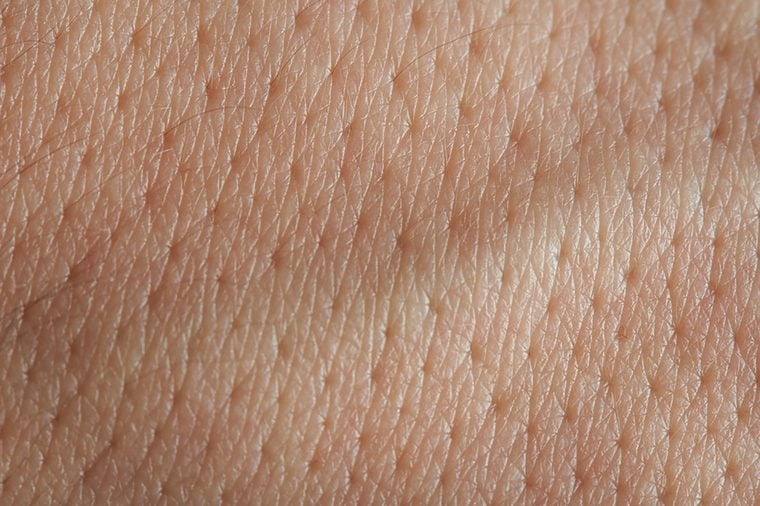
You’re obsessed with clearing your pores
Squeezing the gunk out of your pores is satisfying, but it could encourage scarring. “To avoid the possibility of a scar, I would recommend avoiding the use of metal tools to extract pimples or blackheads, and avoid the use of your fingernails as well,” says board-certified dermatologist Kally Papantoniou, MD. Trained professionals know how to use the instruments properly, but there’s a good chance you’ll end up causing more trauma and inflammation if you try a DIY method. If you aren’t willing to give up the habit, clean your tools with alcohol before and after each use to avoid spreading bacteria and try using tissue paper as a barrier between the metal and your skin, says Dr. Papantoniou. Don’t miss these other 6 things you should know about treating acne scars.

You take a very hard look in the mirror
Spending too much time staring at your pores in the mirror will only make you obsess over little blemishes that no one else would notice. “I don’t recommend looking in magnifying mirrors and picking at every pore on your skin,” says Dr. Papantoniou. Messing with your acne will just do more damage, meaning more breakouts and scars, she says. Instead, find out how to get rid of cystic acne overnight.
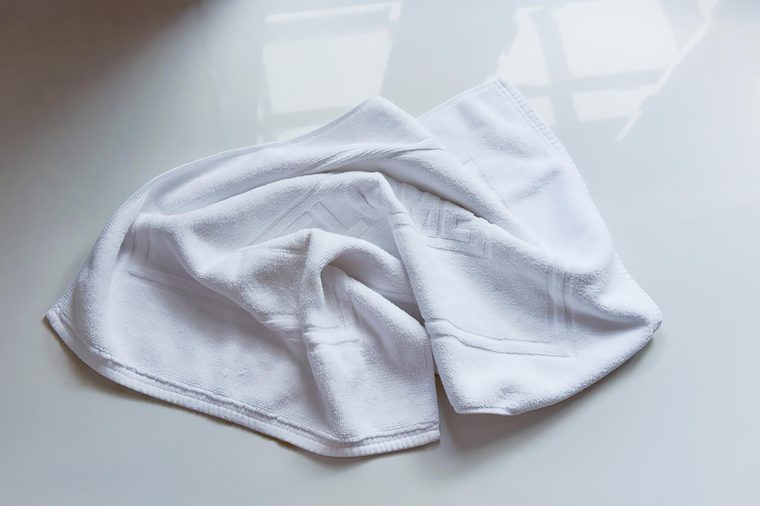
You use a washcloth to wash your face
Washcloths, mechanical facial cleansing brushes, and exfoliating mitts feel like they’re giving pores a deep clean, but they can be too harsh. “Skin is there for a reason. It’s a natural protective barrier against the rest of the world,” says Dr. Lee. “You want to keep that intact and healthy, and don’t want to thin out that barrier.” If you do wear it away too much, your skin can become irritated, sensitive, and vulnerable to bacterial infection—which can all lead to acne scars. Avoid these other face washing mistakes, too.
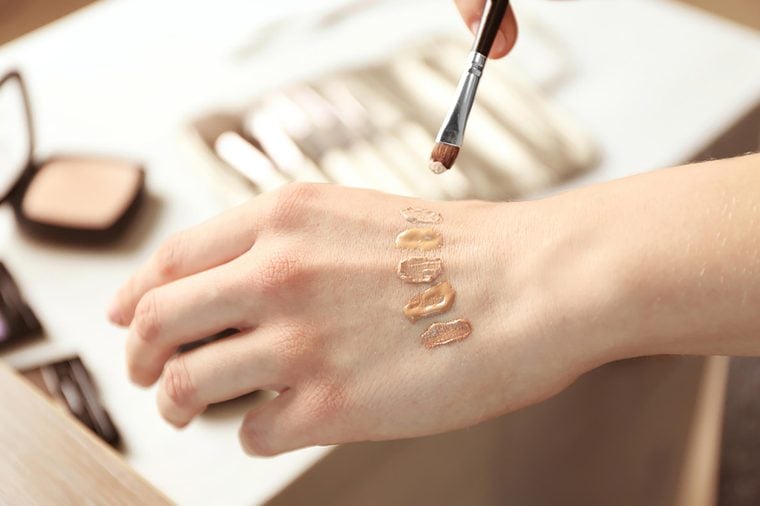
You wear heavy makeup
It’s tempting to cover up blemishes by caking on foundation and cover-up, but they can irritate skin and make acne scars worse. “The things we do to hide acne scars can perpetuate a vicious cycle,” says Dr. Lee. “Choose oil-free and non-comedogenic options so you’re not adding fuel to the fire.” Check out these other 11 makeup rules any woman with acne should follow.
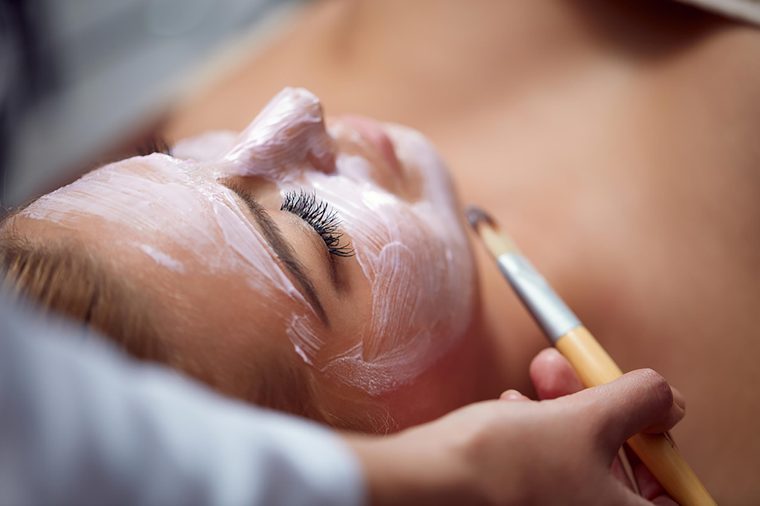
You’ve been using the same treatment for years
Keeping up with a regular acne-fighting skin-care routine is a great first step, but you should visit a dermatologist if acne scars are becoming an issue. A dermatologist can give painless blue light therapy to kill acne-causing bacteria on your skin, says Dr. Papantoniou, and a facial can be more than just a treat-yourself occasion. “Getting regular monthly facials will help reduce acne breakouts and can help clean out pores in a more controlled setting which can reduce the risk of scarring,” she says. Next, find out how to tell if you should consider prescription acne treatment.